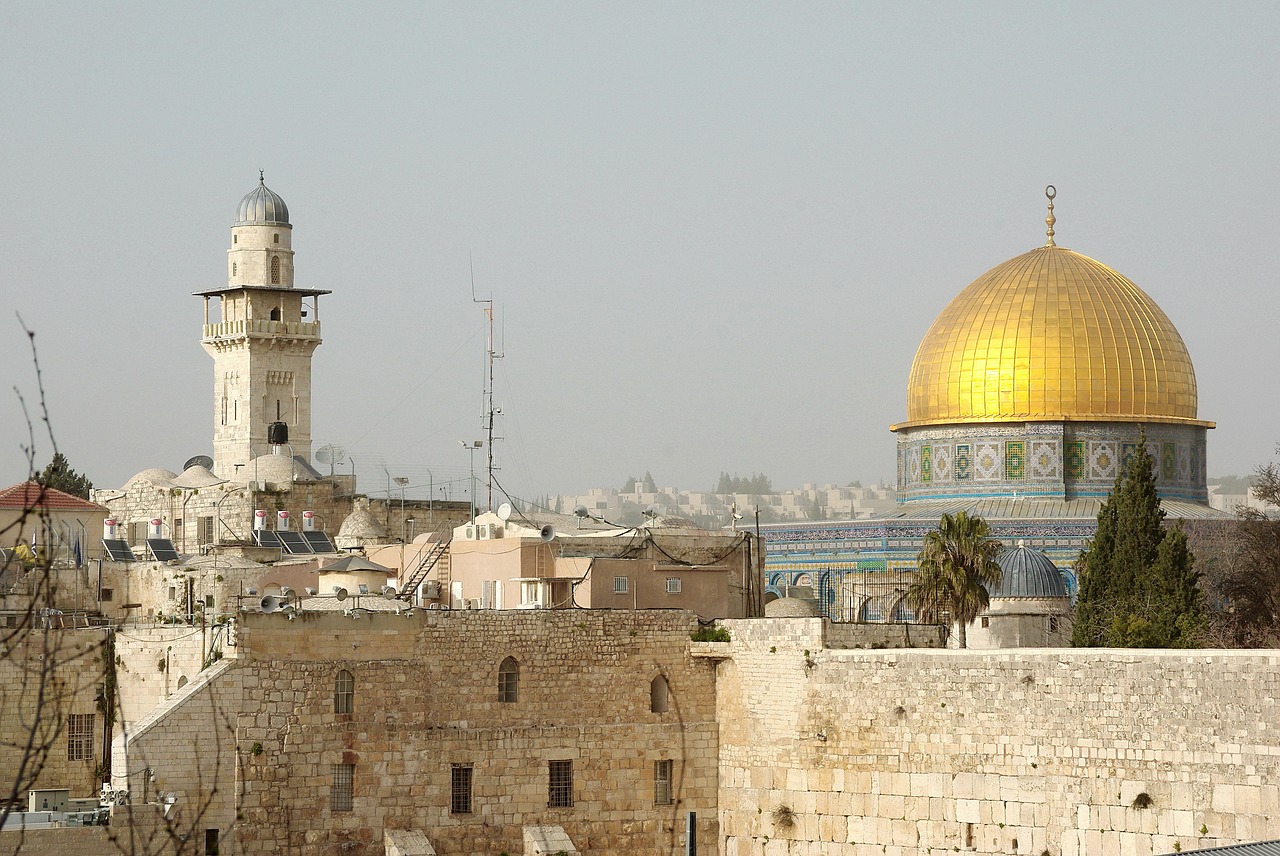
This is a guest post by Hadas Aron, a Faculty Fellow at the Center for European and Mediterranean Studies at NYU.
The recent eruption of violence between Israel and the Palestinians has been the deadliest in years. Israeli airstrikes on Gaza have killed hundreds, and Hamas has launched thousands of missiles, lighting up the horizons of major Israeli cities. This intense military conflict has been accompanied by unprecedented violence between Jewish and Palestinian Israeli citizens. Previous rounds of aggression have rarely included lynch mobs, burnt vehicles, shops, and synagogues in Israeli cities. Although the onset of the conflict was seemingly sudden, the outbreak of ethnic riots stems from ongoing changes in Israeli society, and prolonged domestic political deadlock. Traditionally, democracy in Israel was reserved for Jews. But in recent years, the Jewish consensus has frayed, throwing the political system into disarray. One possible solution is the expansion of the democratic arrangement to include, for the first time, Palestinian citizens of Israel. The backlash against this possibility has brought ethnic relations in the country to a boiling point.
Democracy is a system of government that thrives when the stakes of losing an election are relatively low. If one group in society views losing office as an existential threat, democracy, or the peaceful transition of power, is threatened. This is particularly likely in society deeply divided along ethnic, religious, or socioeconomic lines, where these cleavages overlap, and mobility between rigid groups is low. Such deeply divided societies, like several of the Yugoslavia successor states, Northern Ireland, and Lebanon among others, have struggles to settle intergroup tensions within a democratic setting.
Israel has a deep ethnic cleavage between the Jewish population and the Palestinian citizen minority, which comprises 20 percent of the population. But in fact, democracy was stable for a long period because this cleavage always remained outside of the democratic arrangement — the parties representing the Palestinian minority have never been a part of an Israeli coalition government of the right or the left. The relative consensus that sustained Israeli democracy for decades was exclusively Jewish. Within the borders of Israeli Jewish identity Israel was a well-functioning liberal democracy, but not outside of it. Only one minority government (1993-1995) briefly leaned on the support of Arab parties (after the signing of the 1993 Oslo Accords), and it was framed as illegitimate, reinforcing the rigid ethnic borders of Israeli democracy.
In recent years however, the inner ethnic Jewish consensus has frayed. This process is partly the result of the failed peace process and the second Intifada of the early 2000s, but other causes for the growing polarization are also shared by many Western democracies. Rapid economic liberalization which accelerated in the 1990s, led to growing inequality and a decline in social solidarity. As in many other countries, the traditional left has lost its hegemonic position, and new identity groups gained political power. In addition, the rise of populism, in particular led by long term PM Benjamin Netanyahu, mobilized on political and ethnic cleavages and increased the polarization and violent discourse of the political system and society more broadly.
This fraying consensus has had many expressions, from increasingly negative attitudes toward ultraorthodox Jews to the incitement of violence against the political left. Most significantly, in the last two years, inner Jewish tensions have brought Israeli politics to a complete standstill. Since 2019, four election cycles have not resulted in a stable government. Even the current Israeli-Palestinian conflict is marred by inner disagreement. In previous conflicts, opposition mainstream (Jewish) Israeli politicians supported the government and faded into the background. In contrast, today Jewish left and center politicians are standing by the Israeli military, but are blaming the government, and in particular Netanyahu, for stoking the flames of violence for political gain.
The unraveling Jewish consensus presented one obvious solution to political deadlock –expanding the borders of the democratic arrangement to include Palestinian citizens. Since Jewish Israeli parties are entrenched in their position and cannot align together to form a stable majority coalition, adding one or two Palestinian parties could finally tip the balance of power. Tensions around a possible expansion of democracy beyond the Jewish majority have been on the rise for several years. Some of the most severe expressions of ethnic supremacy included violence by groups like Lehava, an organization founded to prevent inter relationships between Jews and non-Jews, in particular Palestinians; aggressive attempts at gentrification of mixed cities; and the 2018 Nation-State Law, which reserved the right of self-determination in Israel exclusively to Jews, strengthening the Jewish character of the state, and undermining democratic and liberal principals.
In the past, calls to include the Palestinian minority in Israeli politics came from the left. More recently however, coalition negotiations between the right, and later the center-left, and the Islamist party Ra’am, seemed to be leading to a Jewish-Arab coalition. The implication is that deepest cleavage in Israel society, that between Jews and Palestinians, is no longer excluded from the democratic arrangement. Importantly, this is not merely a political or ethnic cleavage, but also a socioeconomic one, as the Palestinian citizens are generally poorer, investment in education and infrastructure in their cities and neighborhoods lower, and crime rates higher. The possibility of their inclusion in political power and the backlash that followed were a tinderbox, agitating extremist of both populations. The events of Al-Aqsa and subsequent conflict with Hamas were the match.
Ethnic violence in Israeli cities shatters the fragile ties between communities and breeds mistrust. There are no easy solutions to deep ethnic divisions in societies in general, and moreover, the divisions within Israel are tied to one of the most intractable conflicts in recent history. Resolving the Israeli Palestinian conflict, and eradicating systemic discrimination toward the Palestinian minority in Israel are pivotal, but on a more immediate term, providing economic remedies to inequality is an achievable and helpful task. Palestinians and ultraorthodox Jews are the poorestcommunities in Israel, and in the case of Palestinians, poverty is accompanied by prevalent crime that goes untreated by law authorities. Investment in Palestinians and mixed cities can go a long way to alleviating some of the immediate intercommunity tensions which is in everyone’s interest.
Palestinians in Israel have a leadership that is willing to bridge the gap between ethnic communities. For Jewish Israeli politicians the temptation to draw back into what is left of the old ethnic consensus will be great — it is a familiar and easy to defend position within Jewish Israeli society. But including the Palestinian citizens in politics and society is the only way to defend Israeli democracy. The inner Jewish consensus that supported a functioning democracy was built on the exclusion of Palestinians, and of groups within Jewish-Israeli society. Though there are lessons to be learned from the past, it cannot and should not be recreated.


0 Comments